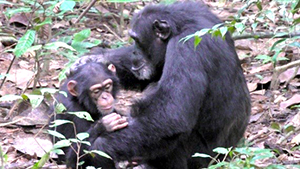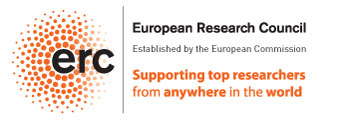ERC project: The influence of early life experience on later social skills in chimpanzee

Social bonding success in life impacts on health, survival and fitness. It is proposed that early and later social experience as well as heritable factors determine social bonding abilities in adulthood, although the relative influence of each is unclear. In humans, the resulting uncertainty likely impedes psychological and psychiatric assessment and therapy. One problem hampering progress for human studies is that social bonding success is hard to objectively quantify, particularly in adults. I propose to directly address this problem by determining the key influences on social bonding abilities in chimpanzees, our closest living relative, where social bonding success can be objectively quantified, and variation in underlying hormonal and cognitive mechanisms can be examined.
We assimilate behavioural, non-invasively sampled hormonal and genetic data from five wild chimpanzee communities across two subspecies with the aim to assess the impact mothers have on offspring development and on their offspring’s future adult life, for example we test the impact of post-weaning maternal loss on offspring behaviour, hormones and reproductive success.
Funding







Who we are
Co-PI: Roman Wittig: Director of the Tai Chimpanzee Project, Ivory Coast, MPI EVA
Postdocs: Patrick Tkaczynski, Cédric Girard-Buttoz, Ruth Sonnweber.
Alumni:
Pawel Fedurek, Sterling University, Scotland
Laboratory staff: Janette Gleiche, Jared Cobain.
Key collaborators:
Tobias Deschner, Head of Field Endocrinology Laboratory, MPI EVA
Linda Vigilant, Head of Ape Genetics Laboratory, MPI EVA
Klaus Zuberbühler: Budongo Conservation Field Station, Uganda, University of Neuchatel, Switzerland.
Cat Hobaiter: Budongo Conservation Field Station, Uganda, University of St. Andrews, Scotland.